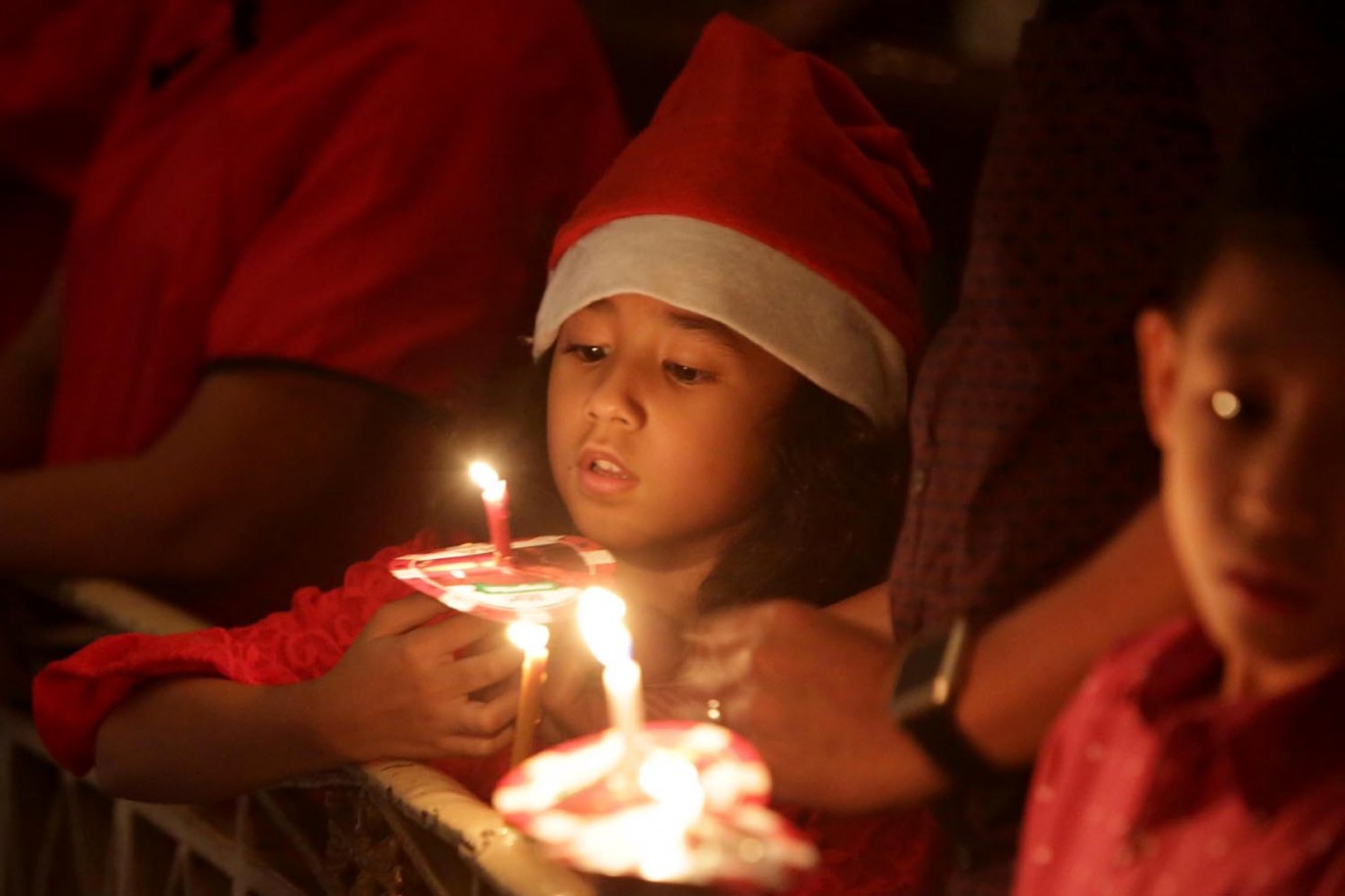Popular Reads
Top Results
Can't find what you're looking for?
View all search resultsPopular Reads
Top Results
Can't find what you're looking for?
View all search resultsA silenced night
However, there is no reason not to sing “Silent Night”. The song could at least serve as a reminder that millions are enduring their plight in many parts of the world.
Change text size
Gift Premium Articles
to Anyone
D
ecember is the month when people begin to sing or listen to “Silent Night”. On Monday night, the 200-year-old song will mark Christmas Mass across the globe.
Silent night, holy night/ All is calm, all is bright
Round yon Virgin, Mother and Child/ Holy Infant so tender and mild
Sleep in heavenly peace/ Sleep in heavenly peace
Two centuries ago, on Dec. 24, 1818, young priest Joseph Mohr as the lyric writer and music teacher Franz Xaver Gruber as the melody composer played for the first time their joint work, originally titled “Stille Nacht! Heilige Nacht”, at St. Nikola Church in Oberndorf bei Salzburg, Austria.
Both the lyrics and melody of the song are quite simple. It has been translated into hundreds of languages that even non-Christians and non-believers are familiar with it. The song’s message, too, is far from complicated, but making it a reality seems nearly impossible.
Wars, starvation, oppression of minorities, systematic abuse of power by rulers and other forms of dehumanization dot today’s world, as if nothing is calm and bright. Even in Jesus’ birthplace, Palestinians have been living under Israel’s suppression for decades. They have fought structured and persistent measures to silence them, without enough international support.
No one knows when exactly Jesus Christ, the son of the Virgin Mary, was born. The Bible, written by Luke and Mathew, only says that Jesus was born in Bethlehem on a silent night. There is no record about the historic birth, which Christians believe marked a start to human salvation.
Christmas, according to the Bible, is the beginning of an episode when “every valley shall be filled, and every mountain and hill shall be made low, and the crooked shall become straight, and the rough places shall become level ways”. It simply refers to an end to poverty, injustice, inequality and violence, but nobody knows if this will happen.
Dehumanization still prevails, as evident, for example, in United States President Donald Trump’s warning about using violence to keep immigrants from the country’s poor neighbors at bay. In crisis-ridden Venezuela, millions will not be able to enjoy a solemn Christmas as they have to seek refuge in neighboring countries just to find food since their rulers deprived them of their belongings.
Close to Indonesia, millions of Rohingya Muslims face an equally difficult decision. They have to decide whether to live far from their own land or return home only to endure more discrimination.
At home, despite the state’s commitment, Indonesia has been slow to see improvements in upholding basic human rights. Minority groups have had their freedoms denied amid a spirit of majoritarianism, even though the Constitution guarantees equal rights for all.
However, there is no reason not to sing “Silent Night”. The song could at least serve as a reminder that millions are enduring their plight in many parts of the world. They may spend Christmas Eve on a silenced night. Despite their suffering, we wish a Merry Christmas to all.










